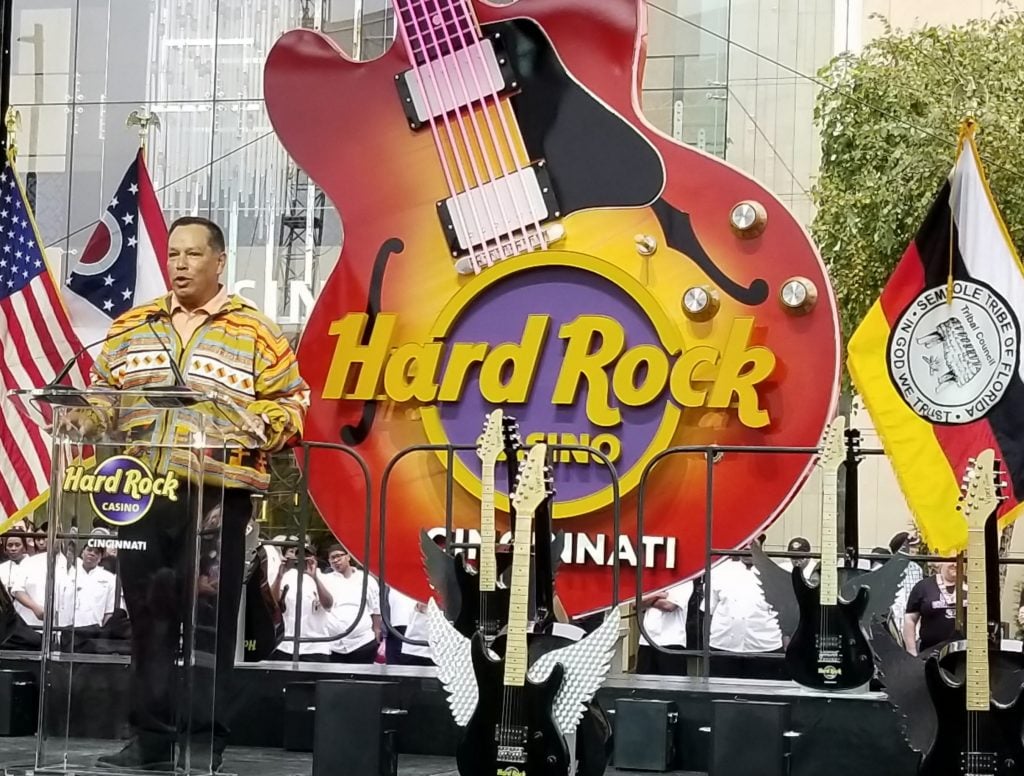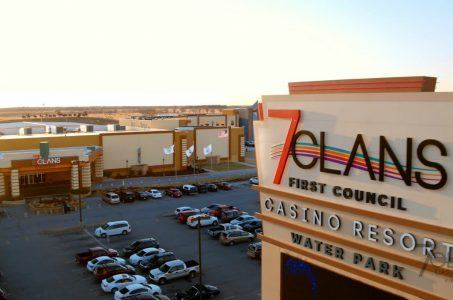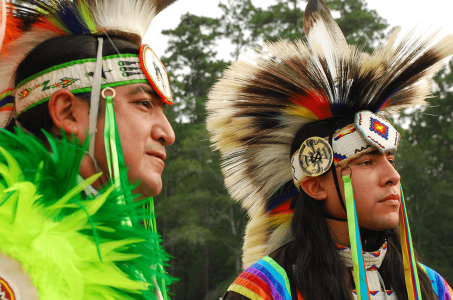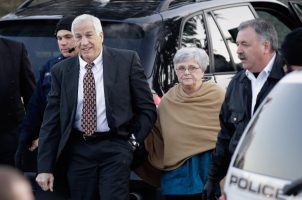Seminole Tribe Appeals Federal Ruling, Seeks Stay in Florida Sports Betting Case
Posted on: November 24, 2021, 02:15h.
Last updated on: December 1, 2021, 10:16h.
The Seminole Tribe of Florida said on Tuesday it will appeal a decision a federal judge handed down the night prior. That federal ruling set aside an amended gaming compact the tribal nation reached with Florida officials earlier this year.

In addition to planning an appeal, Seminole leaders also asked US District Judge Dabney Friedrich to stay her decision to throw out the compact. Among other things, that compact gave the tribe exclusive rights to offer mobile and retail sports betting across Florida.
The Tribe’s economic and sovereign interests will be irreparably injured if a stay is not issued pending resolution of the serious legal issues posed on the Tribe’s appeal,” the motion stated. “Any harm to other parties is still speculative at best, and the public interest weighs in favor of maintaining the public benefits of the 2021 Compact and preserving the status quo, which is to allow an activity approved under federal, state, and tribal law to continue pending the outcome of the appeal.”
The Seminole Tribe asked the judge to make a ruling on the matter by Wednesday. That’s in case it needs to appeal to the District of Columbia US Circuit Court of Appeals.
Despite Friedrich’s order on Monday, the Hard Rock Sportsbook mobile app was still live in Florida, according to a spokesperson for Seminole Gaming.
Case Background
The Seminole Tribe was not a defendant in the case filed by two Florida-based pari-mutuel operators, although it did seek to intervene in the case. The Magic City Casino and the Bonita Springs Poker Room sued Interior Secretary Deb Haaland and the US Department of the Interior in August after the federal government failed to act on the amended gaming compact during its 45-day window for review.
According to federal statute, if the government fails to make a decision, then the compact is considered approved to the point it’s consistent with the Indian Gaming Regulatory Act (IGRA).
The amended compact gave the Seminole Tribe exclusive rights to mobile and retail sports betting. While none of Seminole Gaming’s casinos had opened a brick-and-mortar sportsbook, it did start an “Early Access Launch” for the Hard Rock app on Nov. 1.
Magic City and Bonita Springs argued that the Interior Department should not have approved the compact because IGRA oversees gaming on tribal lands. Federal officials argued that while that was true, the mobile sports betting aspect of the compact was covered by Florida law.
The pari-mutuel operators also claimed they would be harmed by mobile sports betting because it would draw business away from their gaming operations. While the compact also allows the tribal nation to establish partnerships with pari-mutuel operators who agree to host kiosks, the plaintiffs said that there were significant startup costs to that and it would take away from their other games.
Further, a law the Florida legislature passed during the special session that ratified the gaming compact prohibited immediate competition for the Seminoles. While there is a petition drive to get a commercial sports betting amendment on the 2022 election ballot, it would still take several months after a successful vote for competition to emerge for Hard Rock – if Hard Rock was still able to offer sports betting.
Hamish Hume, one of the Boies Schiller Flexner attorneys who represent the pari-mutuel operators in the DC federal case, said the compact sought to give the Seminole Tribe an online monopoly. He said the compact would also make it a felony when conducted by anyone else.
“That violated federal law in numerous ways, and we are very pleased with the Court’s thorough and well-reasoned decision,” Hume said.
DeSantis Defends Compact
During a press conference in Broward County Tuesday, Florida Gov. Ron DeSantis learned of the judge’s decision and defended the rationale behind the compact. He said that the Seminole’s Hard Rock Casino in Tampa is the most profitable casino in the country, and before the amended compact, the state did not receive anything from it.
Under the amended compact, the state was guaranteed $2.5 billion for the first five years of the agreement and $6 billion through 2030.
By nullifying the compact, Judge Friedrich’s decision does not just put Florida sports betting in jeopardy. If upheld, it would also eliminate the revenue payments to the state and prohibit the Seminole casinos from offering roulette and dice table games.
The governor added that it made sense to negotiate with Seminole leaders and allow them to have sports betting because “it would probably pass on a referendum anyways,” which would have allowed them to get it. At the same time, he admitted that the “hub-and-spoke” plan involving pari-mutuels was unsettled legally at the time the compact was established.
DeSantis pinned the blame on the ruling at the federal government’s feet.
“The government wasn’t prepared,” he said. “It seems like they did a poor job in the argument, and I know the tribe wants to be able to go. So, we’ll support whatever we can to validate the compact.”
Related News Articles
Most Popular
This Pizza & Wings Costs $653 at Allegiant VIP Box in Vegas!
Sphere Threat Prompts Dolan to End Oak View Agreement
Fairfax County Officials Say No NoVA Casino in Affluent Northern Virginia
Atlantic City Casinos Experience Haunting October as Gaming Win Falls 8.5%
Most Commented
-
VEGAS MYTHS RE-BUSTED: Casinos Pump in Extra Oxygen
— November 15, 2024 — 4 Comments -
VEGAS MYTHS RE-BUSTED: The Final Resting Place of Whiskey Pete
— October 25, 2024 — 3 Comments
















No comments yet